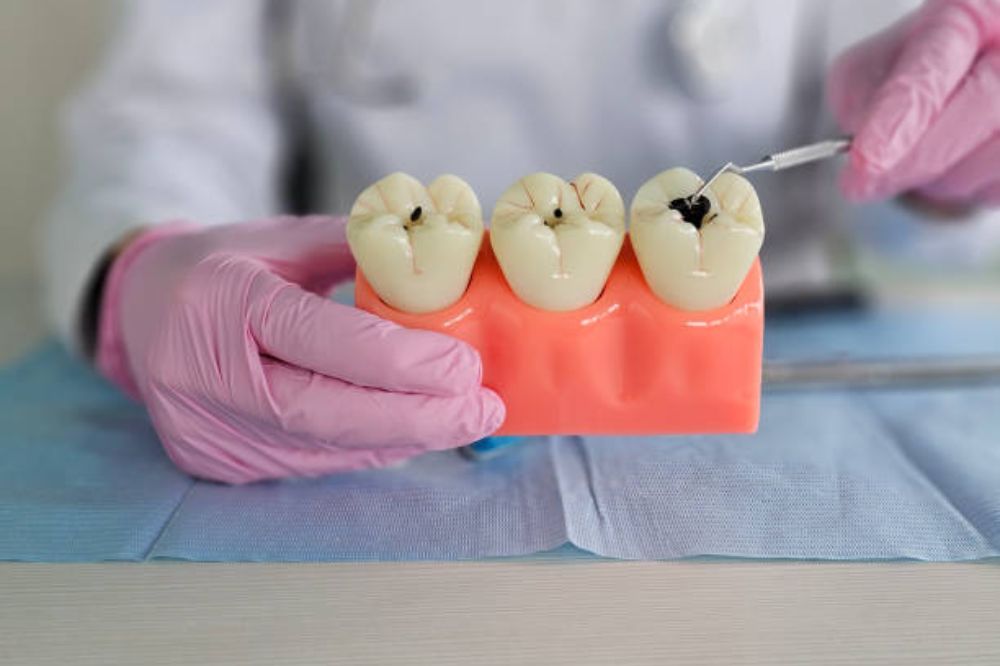Gum disease is a very common oral condition affecting millions of people around the world. If left untreated, gum disease can evolve from mild inflammation to severe infection that can lead to complications such as tooth loss. Thankfully, there are many different types of gum disease treatment near you, depending on what stage of gum disease you have. Knowing about these treatment options will help you take appropriate action to help keep your smile healthy.
What Is Gum Disease?
Periodontal disease, commonly referred to as gum disease, involves an infection of the tissues that hold your teeth in place. Periodontal disease can start with a buildup of plaque and will cause your gums to become red, swollen, and bleed more easily. If you don’t seek early mild gum disease treatment,it can progress to advanced stages where you may experience bone and tooth loss.
This is when it is important to find a dentist near you to see for professional diagnosis and treatment. The main purpose for the treatment is to restore your oral health, but also to prevent the disease from worsening.
Mild Gum Disease Treatment Options
Gingivitis is an early form of gum disease that is thankfully reversible with care. Common treatment options involve:
- Professional Dental Cleaning –A thorough cleaning by your dentist to remove plaque and tartar that can’t be removed by brushing alone.
- Improved Oral Hygiene – Brushing two times a day, flossing, and using an antibacterial mouth wash can greatly reduce symptoms.
- Scaling and Root Planing (Deep Cleaning) – Patients with early gum problems may be treated with the procedure called scaling and root planing
This procedure smooths out the root surfaces of the tooth so that bacteria cannot attach again.Treating gum disease early with these techniques will enable the gums to be healthy again, and eliminate any symptoms that may lead to future problems.
Moderate Gum Disease: Dental Treatment Options
At the point when gum disease becomes periodontitis from gingivitis, the inflammatory process has destroyed or damaged gum tissue and the supporting bone. Some enjoyable dental treatment for gum disease after it progresses to periodontal disease includes,
- Deep Cleaning with Local Medication – such as antibiotics, for example, if someone has advanced gum disease than gingivitis,
- Laser Therapy – includes deep cleaning without antibiotics, as this procedure is a minimally invasive treatment option that addresses the infection in the gums and reduces bacteria and infected tissue helping the gums heal faster.
- Ongoing Maintenance – includes the patient’s need for continued cleaning of the gums, which is needed every three months to monitor disease control and ensure that there is no relapse.
Severe Gum Disease Treatment Options
Advanced periodontitis is the most severe type of gum disease, often resulting in loose teeth or tooth loss. Treatment may include:
- Surgical Procedures – Such as flap surgery, or pocket reduction surgery, may be needed to clean out deep pockets of infection.
- Bone Grafts and Gum Grafts – Which replace bone and gum tissue that has been lost, improving function and appearance..
- Tooth Replacement Solutions –In the cases of tooth loss, dental implants or bridges may be recommended.
In this case, it is especially important to continue therapy from a dental professional at this stage to ensure no further complications arise.
Preventing Gum Disease Progression
Although numerous possible treatments exist, it is better to prevent than cure. The best solution to keeping gum disease at bay would be to maintain good oral health, eat a well balanced diet, shun smoking, and carry out regular dental checkups.
Conclusion
Gum disease is a medical concern that must be addressed by professionals regardless of the level of development. Since it can be mild gingivitis and severe periodontitis, the appropriate treatment regimen will be able to heal and maintain your smile. To receive a more personalized care and treatment choice, book your appointment with Blackfalds Dental Centre today.










